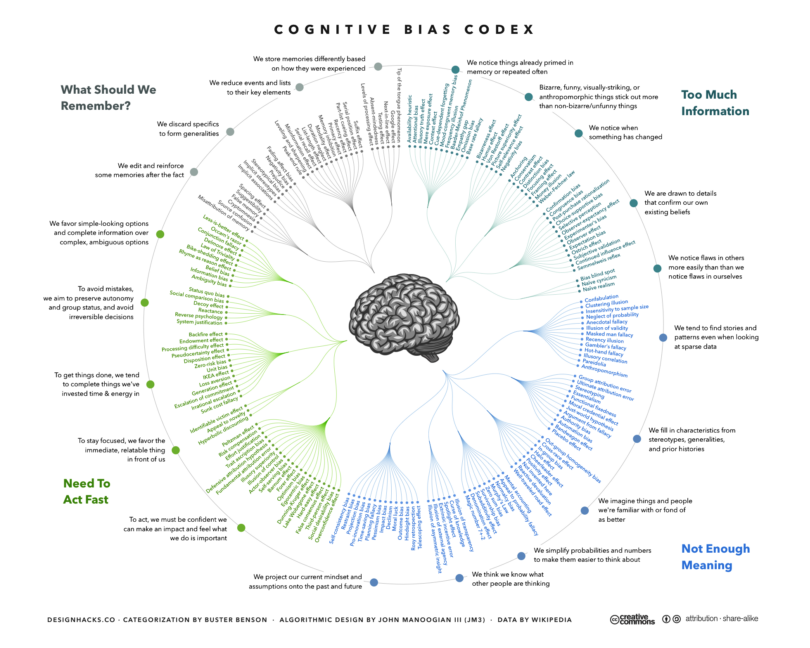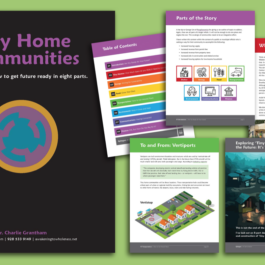What are the top 10 trends for the next ten years? Download the report here.

Are cognitive biases bad?
No. We need cognitive biases.
Our brain developed these biases, AKA shortcuts, to prevent us from becoming overwhelmed and paralyzed by life.
Buster Benson has thought deeply about cognitive biases. His insight? There are four primary reasons humans developed cognitive biases. Each reason is correlated to one quadrant of the codex, illustrated above:
1. There's too much information to ingest and make sense of, so we ignore most of it. This includes 42 biases, in the upper-right quadrant (blue-green).
2. We can't make meaning of everything, so we fill in gaps, bolt different ideas together, and voila, we understand the world. This includes a whopping 63 biases in the lower-right (blue) quadrant.
3. We need to act fast, so we make judgment calls. This includes 52 biases, in the lower-left quadrant (green).
4. Our brains aren't big enough to remember everything, and generalizations take up less room. This includes 31 biases in the upper-left (gray) corner.
That's 188 discreet biases that humans' brains have developed to help them navigate the world. (Thank you, brain.)
And yet...futurists must be aware of their biases so they can see the world - and plausible futures - clearly.
Read Buster's excellent blog about how he developed the Codex
Check out Wikipedia's list of Cognitive Biases
Play with this interactive Wikipedia Cognitive Bias Codex
If you enjoyed this post, please subscribe to our newsletter.

Rebecca Ryan, APF
Rebecca Ryan captains the ship. Trained as a futurist and an economist, Rebecca helps clients see what's coming - as a keynote speaker, a Futures Lab facilitator, an author of books, blogs and articles, a client advisor, and the founder of Futurist Camp. Check out her blog or watch her Q&A on how NGC helps organizations prepare for the future using Strategic Foresight. Contact Lisa Loniello for more information.
Yasemin Arikan Promoted to Director of Futures Research
NEXT Generation Consulting (NGC) announced the promotion of Yasemin Arikan to Director of Futures Research. Arikan will lead the company’s efforts to...
Is Your Housing Market Ready for Your Future?
One of the biggest problems facing many cities and towns is inadequate housing. This problem is most acute for seniors, veterans with disabilities, and low-income groups ...
Three Things Martha Stewart Gets Right About Return to Office (RTO)
The original influencer and the person who invented the "Home" retail category, Martha Stewart, became the latest CEO to tell employees to get back to the office five day...







